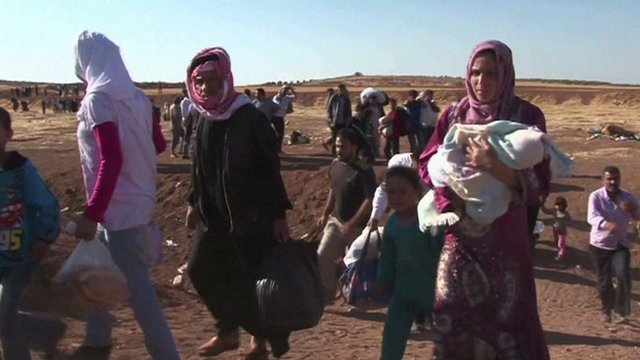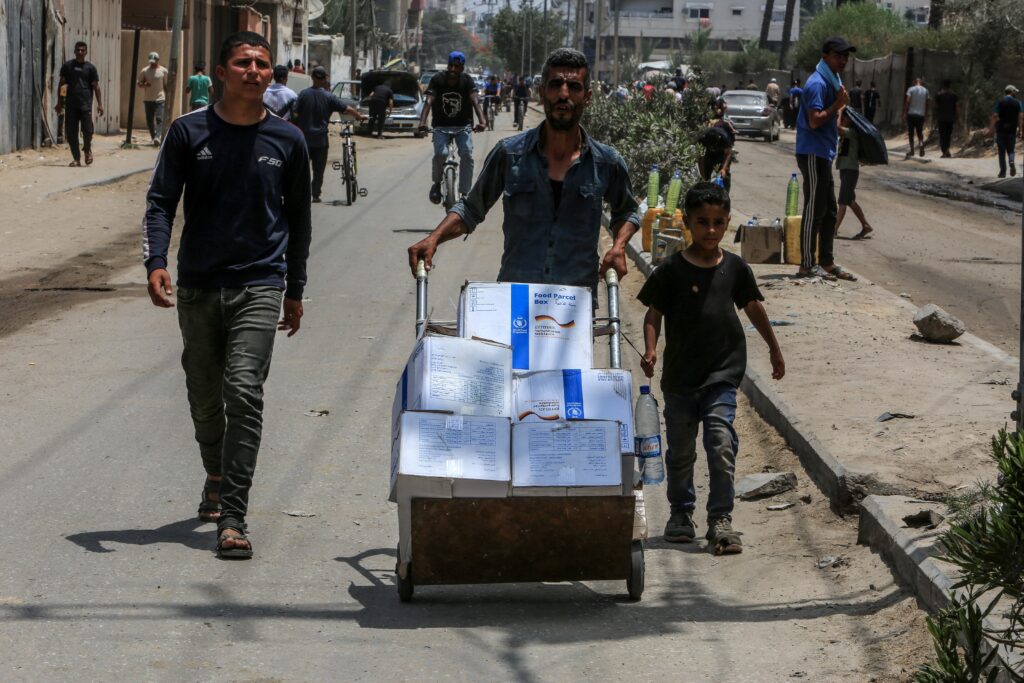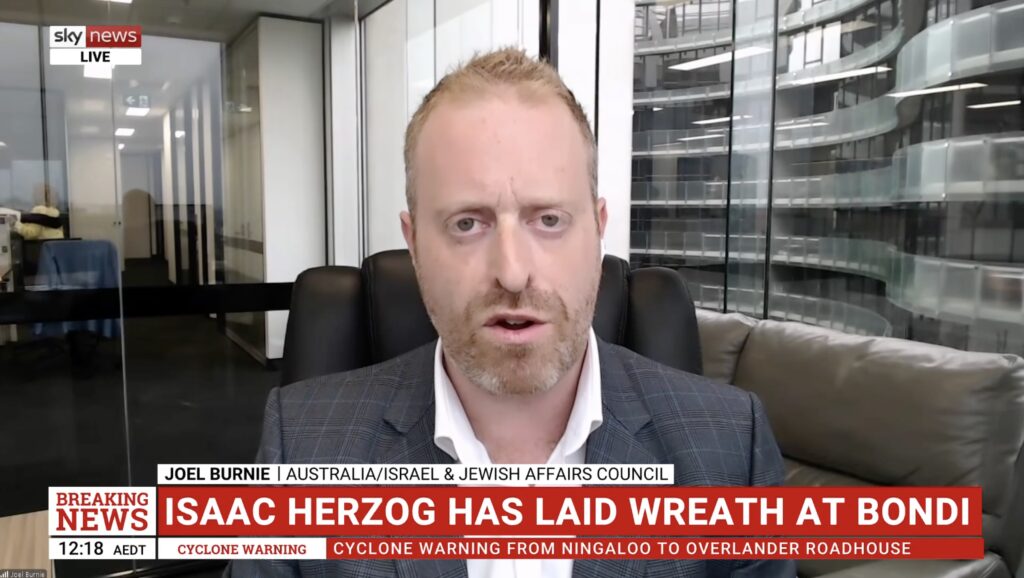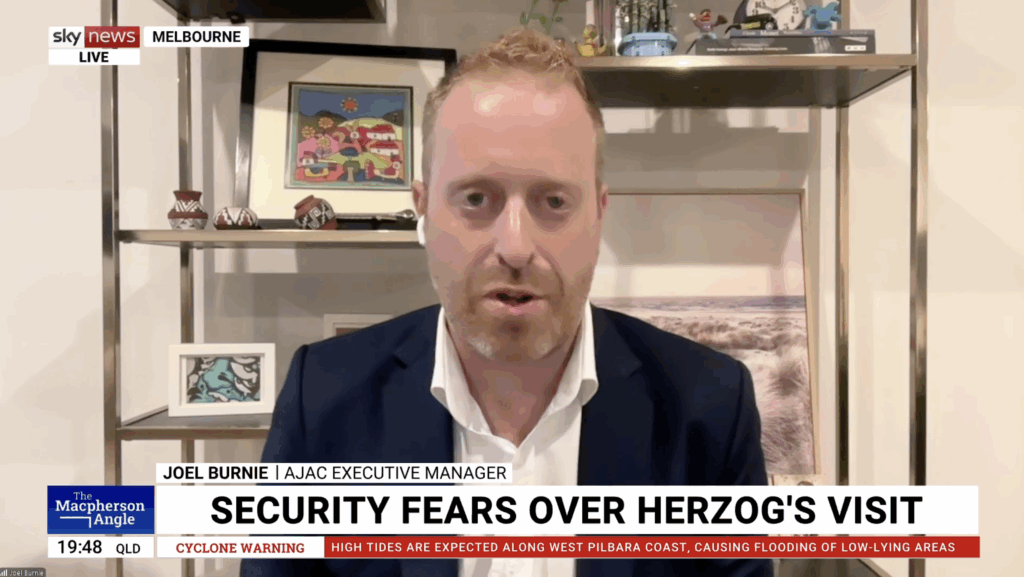UPDATES
The UN effectively gives up on Syria
December 9, 2013 | Or Avi Guy

Or Avi-Guy
Ever get the feeling that, after years of paralysis and stalemate, the international community have given up on resolving the crisis in Syria? The UN General Assembly (UNGA) 68th session has just wrapped up while UN Secretary-General Ban Ki-Moon has announced that a Peace Conference for Syria will take place in Geneva in January, so this is an opportune time to assess the international community’s role in promoting a return to peace in that troubled country.
The best way to describe UNGA discussion on the ongoing crisis in Syria during recent session is “blink- and you’ll miss it.” It was mentioned in the Third Committee discussions (dealing with social, humanitarian and cultural issues), where only one resolution on Syria was passed. By comparison, according to UNWatch, a whopping 22 resolutions were passed regarding the Israeli-Palestinian conflict.
It seems that the UNGA was too busy disproportionately focusing on Israel to deal with the humanitarian catastrophe across the border. To anyone who truly cares about human rights and the role of the international community in alleviating the suffering of the very vulnerable, this is a travesty.
Even if the situation is Syria was severely under-debated, the UNGA single resolution on Syria is still worth a close read. It is a brilliantly frustrating example of UN-jargon. The UNGA keeps on expressing “deep” and “grave” concern, “alarm” and even “outrage”. They “condemn”, sometimes even “strongly”, the unending atrocities.
The UNGA is by no means exaggerating when the document suggests that some of the atrocities perpetrated in Syria “may amount to crimes against humanity”, and the “magnitude of the humanitarian tragedy” can hardly be overestimated.
Some of the most serious human rights violations mentioned are the large scale use of chemical weapons – including against civilians, attacks on schools, hospitals and places of worship, massacres, arbitrary executions, extrajudicial killings, enforced disappearances, violations of women’s rights, torture, sexual and gender based violence, rape in detention, violations and abuse of children. The list goes on and on, and on. The death toll exceeds 100,000 casualties, with millions of refugees and internally-displaced persons living in harsh conditions which continue to deteriorate.
Sadly, other than strong words, they have little to offer. Similar determined words have been uttered before, both by the UN and by President Obama, but no deeds followed.
Perhaps the most troubling and tragic aspect of the UN failure to act relates to the humanitarian aid supply crisis. With the Security Council paralysed and split on Syria, with Russia and China able to veto resolutions supported by the US, European and Arab members, it is hard to reach an agreement even on aid and relief work.
The first Security Council formal statement on the issue was published on Oct. 2, and it called on both Syria and the armed opposition to permit access to relief workers. This weak statement was disappointingly inadequate given the scale of the crisis. According to the UN itself, more than 9.5 million Syrians require humanitarian aid, out of which 2.5 million people live in areas to which international relief workers do not have access.
Antonio Guterres, the U.N. high commissioner for refugees, said in September that “Syria has become the great tragedy of this century — a disgraceful humanitarian calamity with suffering and displacement unparalleled in recent history”. Yet again, words and deeds are miles apart.
The UN Office for the Coordination of Humanitarian Affairs (OCHA), fully aware that Assad is intentionally preventing the supply of humanitarian aid to civilians in rebel-held territories, has continuously chosen to deal with the issue via behind the scenes diplomacy and avoided pointing its finger at the obvious problem – the regime.
While siege tactics were used on both sides of the conflict to some extent, Assad’s forces used humanitarian aid distribution as an integral part of the military campaign. On the one hand, they withhold aid supplies from opposition-held territories with the clear intent of starving out potential supporters of the armed opposition. On the other hand, Assad’s government is using humanitarian aid distribution for its own political gains by directing all aid deliveries to pro-Assad areas, thus making sure only its supporters receive food and supplies.
Human rights organisations and advocates criticised the OCHA, the United Nations’ chief relief agency, for withholding important information about the Assad regime’s systematic attempts to block humanitarian assistance to Syrian civilians. They claim that had the OCHA publicly exposed Assad’s campaign they could have helped build political pressure on the Syrian government, which would eventually be forced to allow international organizations to provide assistance to Syrian civilians in urgent need of aid.
The OCHA for its part remains committed to pursuing diplomatic efforts to quietly persuade the government to allow provision of aid, and, in order to gain Assad’s cooperation, they have avoided placing blame on the Syrian government for intervening and sabotaging in the UN relief efforts. Yet critics say that so far these efforts has been ineffective, while providing some political cover and leeway to the Assad regime to continue to intentionally starve the population by withholding aid.
Peggy Hicks, the head of advocacy for Human Rights Watch, stated that the UN “should be much more willing to point the finger at the Syrian government when they are responsible for vast blockages of aid. They haven’t said enough about who is responsible for violations and the character of those violations.”
Due to pressure from human rights and aid groups and aid agencies, the OCHA seems to have intensified its public disapproval of the Assad regime’s treatment of relief workers and aid supply. It is, unfortunately, unlikely to be enough to fix the humanitarian tragedy. Moreover, for some Syrians, it is likely too late.
Possibly the most important parts of the UNGA resolution on Syria are the articles which express the UN’s vision for conflict resolution. Towards the very end of the resolution, the UNGA “Stresses that rapid progress on a political transition represents the best opportunity to resolve the situation in the Syrian Arab Republic peacefully…”, and in order to promote such transition, called for an international conference. Now all eyes, and hopes, will be focused on the January Geneva conference – assuming it goes ahead, which is not yet assured.
Even if it does take place, the challenges to finding a political solution to the Syrian conflict might be impossible to resolve under the current circumstances, and analysts remain pessimistic.
Assad’s regime is strategically better positioned right now and holds the military upper hand. Therefore, he has fewer incentives to compromise and some suggest that he will never resign or step down willingly, making chances of a power transition very slim. Even if he does step down, some analysts suggest, the Alawites are likely to keep on fighting, as they would feel highly insecure and vulnerable.
In the international arena, Assad and his Iranian allies seem to have had a confidence boost recently after signing to deals which are highly favourable to them with the international community – regarding Syria’s chemical weapons and the nuclear interim agreement with Iran. These agreements are interpreted as a permission to continue with their current course; the Assad regime is free to continue the civil war, and the Ayatollahs will continue to enrich uranium. Both deals were silent on Iran-sponsored Hezbollah’s destructive role in the Syrian conflict.
Meanwhile, the Syrian opposition is highly fractious, and the Geneva conference is yet another divisive issue. Some of the most important groups within the opposition refuse to participate in negotiations and fiercely oppose the Geneva conference.
While the Syrian Opposition Coalition might be willing to attend, leaders of the major opposition fighting forces will be absent. These include the Islamist fighter brigades, now united under the “Islamic Front”, which includes at least half of the fighting forces. They have distanced themselves from the Coalition, refuse to participate in any negotiations with Assad and would not accept any agreement that would keep him in power.
At the same time, distrust towards the Syrian National Coalition grows, raising real questions regarding its ability to represent the anti-Assad side in the Geneva talks. The Coalition is an exile group and seems to no longer represent the Syrian public opinion. The coalition, for its part, sees itself as the only opposition representative and has declared that it will be the one assembling the Geneva delegation, knocking back some opposition groups which have asked to be included in the negotiations.
This means that the Geneva conference will take place in strategic circumstances which favour Assad on the one hand, hardening his position and reducing any willingness to compromise and give up power. Meanwhile, on the other hand, the more radical Islamist fighting opposition forces refuse to participate in negotiations at all. Finally, the opposition representatives who say they will – namely the Coalition delegation – lack a mandate from the public they claim to represent.
And as if that is not bad enough, even the Coalition itself is split over the Geneva negotiations. The commanders of Free Syrian Army (FSA), the Coalition’s military wing, has stated that the FSA will not participate in the talks, and will continue fighting until Assad is ousted. Other members argue that Assad’s resignation and legal prosecution should be a precondition to negotiations.
Needless to say, these do not exactly look like conditions conducive to a power transition agreement. Yet the UN seems to have placed all its eggs for Syria in this very frail basket.
Tags: Syria





